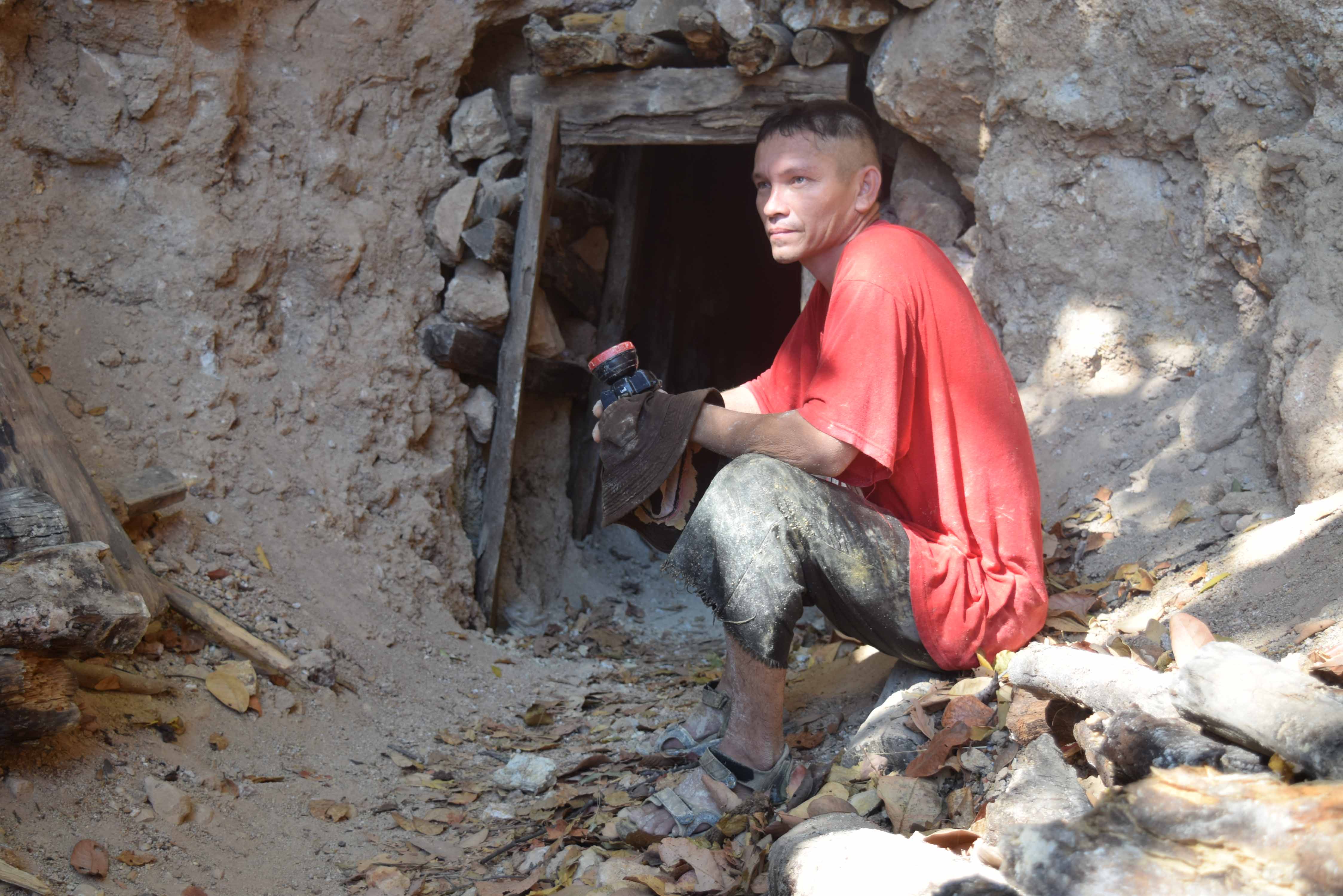By Sebastian Rosemont - Photo by: Genia Yatsenko
Little has changed in the community since Commerce Group Corporation (CGC) abandoned mining operations in El Salvador in 2006 after its mining permits were revoked. Despite losing the permits for failing to meet environmental standards, CGC sued the Government of El Salvador to continue mining in the region. CGC lost its legal disputes against the government with the final ruling handed down in 2013.

Recently, the Attorney for the Environment from the Office of the Attorney for the Defense of Human Rights (PDDH) visited the community of San Sebastian in the Department of La Union. The visit was a follow up to the PDDH’s 2016 Special Report in which they laid out binding recommendations for the company and government institutions responsible for remediating the contamination in San Sebastian. Key recommendations were related to cleaning up the contaminated river, providing community health and access to potable water, testing for health impacts on the local population and providing economic alternatives to artisanal mining.
Environment Attorney Ana Milagro Guevara de Medrano found that after a year the community still has no immediate access to clean water and families have to pay over 28% of their monthly income to access clean water delivered in barrels from a nearby community.
“As we have said before, the river is contaminated, there is no access to potable water and this, in reality, aggravates the situation of the community. It is a very pressing environmental problem...up to today [the community] does not have a project [to bring them] potable water,” she said.
According to the 2016 report, the average cost of water in San Sebastian is between $2.50-$4.10/m3 compared to at most $0.25/m3 in San Salvador. The stream, the only natural source of water in San Sebastian, remains lifeless and unsuitable for human use. The PDDH officials noted that the contamination levels of the stream were still readily apparent - the water had a rusty coloration and corrosion, caused by mercury and other heavy metals in the water, was visible all along the rocky bank. Although the stream has been contaminated for years, there are still families that live in close proximity, grow crops on the river shores and use the water for domestic purposes during the rainy season.
Accompanied by the Association for the Development of El Salvador (CRIPDES) and SalvAide, the community organized a meeting to address the current conditions in San Sebastian. Residents made it clear that no improvement had been made regarding access to water and river clean-up. Community members also lamented the lack of jobs, which is one of the primary reasons artisanal miners, known as güiriseros, continue to work in the mountain and use dangerous chemicals without any form of government regulation.
“It is one of the consequences of the lack of access to jobs in the area...the relevant institutions must take measures through which they are also able to offer, to the community, other means of subsistence,...provide other employment options,” Guevara de Medrano said when asked about the persistence of artisanal mining. She also acknowledged the community needs to reach out to the güiriseros and incorporate them into the discussion because they are also affected by the lack of access to water and formal employment (no miners attended the community meeting).
Continuing the investigation at the site of the San Sebastian gold mine, the PDDH officials met with several güiriseros. They still descend into the mountain to extract what gold they can. The güiriseros work in teams and dig their own narrow tunnels into the mountain, propped up by old wooden beams of questionable quality.
Nearby, the investigators checked on two shipping containers left behind by CGC. The containers are said to hold barrels of cyanide, the chemical used to separate gold from mined rock. The PDDH officials discovered that the locks, simple padlocks, had been cut and evidence that the door had been forced open on one of the containers.
While the conditions for the residents of San Sebastian remain dismal, the community continues, with the support of national and international NGOs, to organize for better access to water and improved quality of life.
For its part, the PDDH is determined to continue pushing for the implementation of their 2015 recommendations. They also want the Government of El Salvador and the international community to put pressure on CGC to pay for the costs of cleaning up the contaminated river, removing the chemicals left behind, and ensuring the community of San Sebastian has access to potable water.
